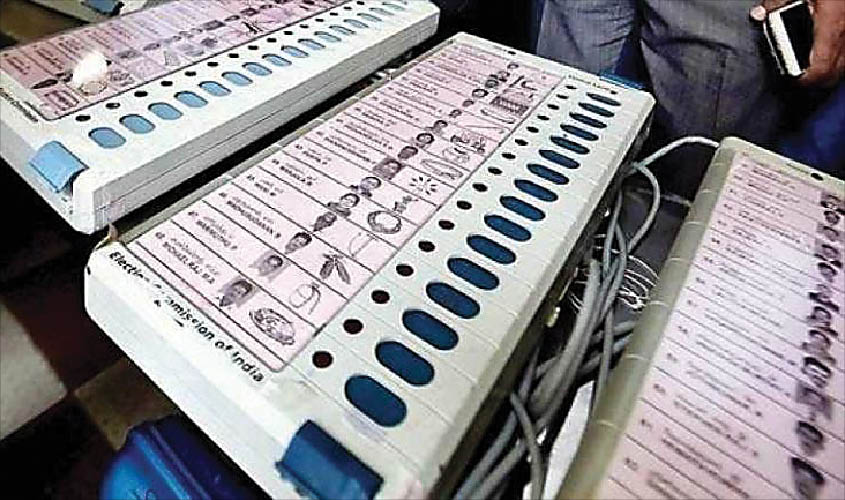Hyderabad: As the counting of votes for the Lok Sabha and Assembly elections is scheduled to take place on 23 May, the Election Commission (EC) has called for additional security forces at the centres amid fears of heightened tensions between the ruling TDP and the Opposition YSR Congress Party in Andhra Pradesh. At least 120 companies of paramilitary forces are likely to be deployed in addition to local police.
This is unusual as the counting of votes is requiring almost an equal number of security forces on par with that of polling day on 11 April. Sources in the Chief Electoral Officer’s (CEO) office and the government told this newspaper that intelligence reports suggest that the authorised counting agents of both the parties are likely to resort to violence, damaging EVMs and other properties of the EC, if trends go wrong.
On 11 April, when the first phase of polling was held in Andhra Pradesh, violence erupted in as many as 29 booths and two persons were killed in the clashes that ensued. AP Assembly Speaker Kodela Sivaprasada Rao was assaulted in a polling station in Guntur district and candidates of both TDP and YSR Congress were injured in four other places. Re-polling was held in a dozen booths later.
As both sides had lodged complaints
There will be 175 counting centres—each consisting of around 20 tables—for each of the Assembly segments in Andhra Pradesh. The EVMs of Assembly and Lok Sabha will be opened simultaneously and the votes will be counted together. Postal ballots will be counted before the EVMs are opened and the Voter Verifiable Paper Audit Trail (VVPAT) of selected Assembly segments—five from each Assembly segment—will be counted next.
Both TDP and YSR Congress have conducted special training camps for their identified counting agents and given them tips to see that the other side is not benefited due to loopholes in the counting process. Legal experts have conducted classes for the TDP agents and explained the powers and duties of the counting officials in case there is a dispute in the process. The passes of counting agents were scrutinised by the top party leaders.
YSR Congress Rajya Sabha member K. Vijaya Sai Reddy chaired a training camp for the party counting agents in Vijayawada on Thursday. Former chief secretary Ajay Kallam and former principal secretary Samuel who handled the Election Commission work earlier had conducted classes for the party agents and told them of the precautionary measures to be taken to see that their votes were not counted wrong.
YSR Congress MLC and spokesman Ummareddy Venkateswarlu told this newspaper: “We have information that TDP agents were trained to disrupt the counting process in case we get more votes in each round, and it is our duty to see that our agents are well informed and kept alert till the last vote is counted.”
TDP minister S. Chandramohana Reddy, too, leveled a similar charge against YSR Congress saying that the Opposition party agents were trained to disturb the counting process and create violence at the counting centres, if the TDP candidates secure majority at every round. On an average, each Assembly seat will have 20 rounds of counting.
Both the parties are focusing their attention on the discrepancies in the postal ballots as well as the differences between the VVPAT slips and the EVM figures. Even if there is a slight difference between the two, the agents might insist on re-counting of all VVPATs, which might not be allowed by the election officials, thus delaying the counting process.
The election officials are apprehensive that the agents of the parties might physically obstruct the counting process, in case their demands were rejected.

